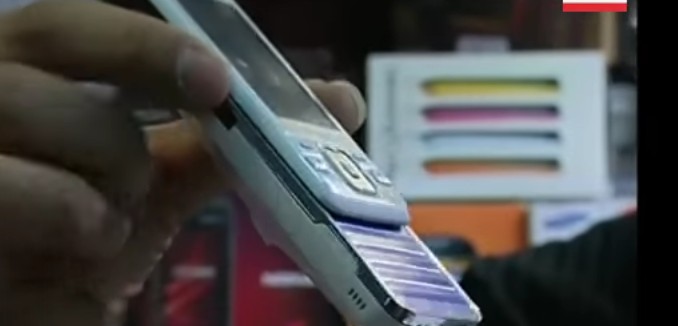Increased European tech exports to Iran will allow Tehran to more easily oppress its citizens, Benjamin Weinthal, a research fellow at the Foundation for Defense of Democracies, wrote in an analysis published Sunday in The Jerusalem Post.
With the lifting of sanctions, Western leaders have relegated concerns about Iran’s misuse of European technology to political oblivion. Current snapshots of European political comments and reports of trade deals reinforce the view that ordinary Iranians will suffer at the hands of their clerical leaders.
According to an August 4 Persian-language report from the state-controlled Mehr News Agency, an Iranian information technology official announced a joint project with an unnamed “foreign company” to start phase two of a “targeted filtering” program that is designed to censor “websites and networks that commit social harm.”
There is a long history of nefarious business deals in the field of communications between Iran and the West. For example, in 2008, the Finnish-German venture Nokia-Siemens sold the regime advanced surveillance equipment. When Iranian democrats poured into the streets in 2009 to demonstrate against the fraudulent presidential election, the regime activated its Nokia-Siemens technology to block social media and mobile communications among the protesters.
Iran’s minister of information and communication technology has publicly announced plans to filter “immoral” content, and said that technology users “must know that all information is transferred through a gateway and it all exists inside the country.”
One of the few European politicians to criticize these dealings is Volker Beck, a member of the German Bundestag for the Green Party. “Germany should not sell security technology to dictatorships like Iran, Saudi Arabia or Russia,” Beck told Weinthal. “And goods should not be exported which can be used there for torture or the implementation of the death penalty.”
In another article published Sunday in The Independent, co-written with Julie Lenarz, Executive Director of the Human Security Centre, Weinthal observed that European governments and firms are already taking steps to increase commercial ties with Iran despite the country’s use of European goods to oppress its citizens.
Germany’s vice chancellor and economic minister, Siegmar Gabriel, was the first high profile Western politician to visit Iran, heading a delegation of industry representatives including Siemens, Mercedes-Daimler and Volkswagen. Germany exported €2.7 billion of services and goods to Iran in 2014 – an increase of almost 30 per cent compared to the previous year.
Philip Hammond visited this week, together with a delegation of business leaders, and announced that British businesses have a “huge appetite” for trade relations. He was the first Foreign Secretary to set foot in the country since 2003, re-opening the British embassy in Tehran which was closed four years ago after it was ransacked during a protest against British-imposed sanctions. The energy company Royal Dutch Shell is extremely keen to rekindle business, announcing the slated release of $2 billion in frozen Iranian assets.
Following in the footsteps, Italy’s foreign minister promised Iran a $3 billion line of credit. French car maker PSA Peugeot Citroën announced the re-establishment of commercial ties and plans to manufacture cars locally and its rival, Renault SA, is in talks to buy a minority stake from its Iranian state-controlled joint venture partner Pars Khodro. It also emerged that France’s foreign minister Laurent Fabius said “around a hundred” French business leaders will travel to Tehran in September.
Weinthal has documented Iran’s worsening human rights situation under current President Hassan Rouhani, including the oppression of Christians and the LGBT community.
[Photo: AP Archive / YouTube ]




